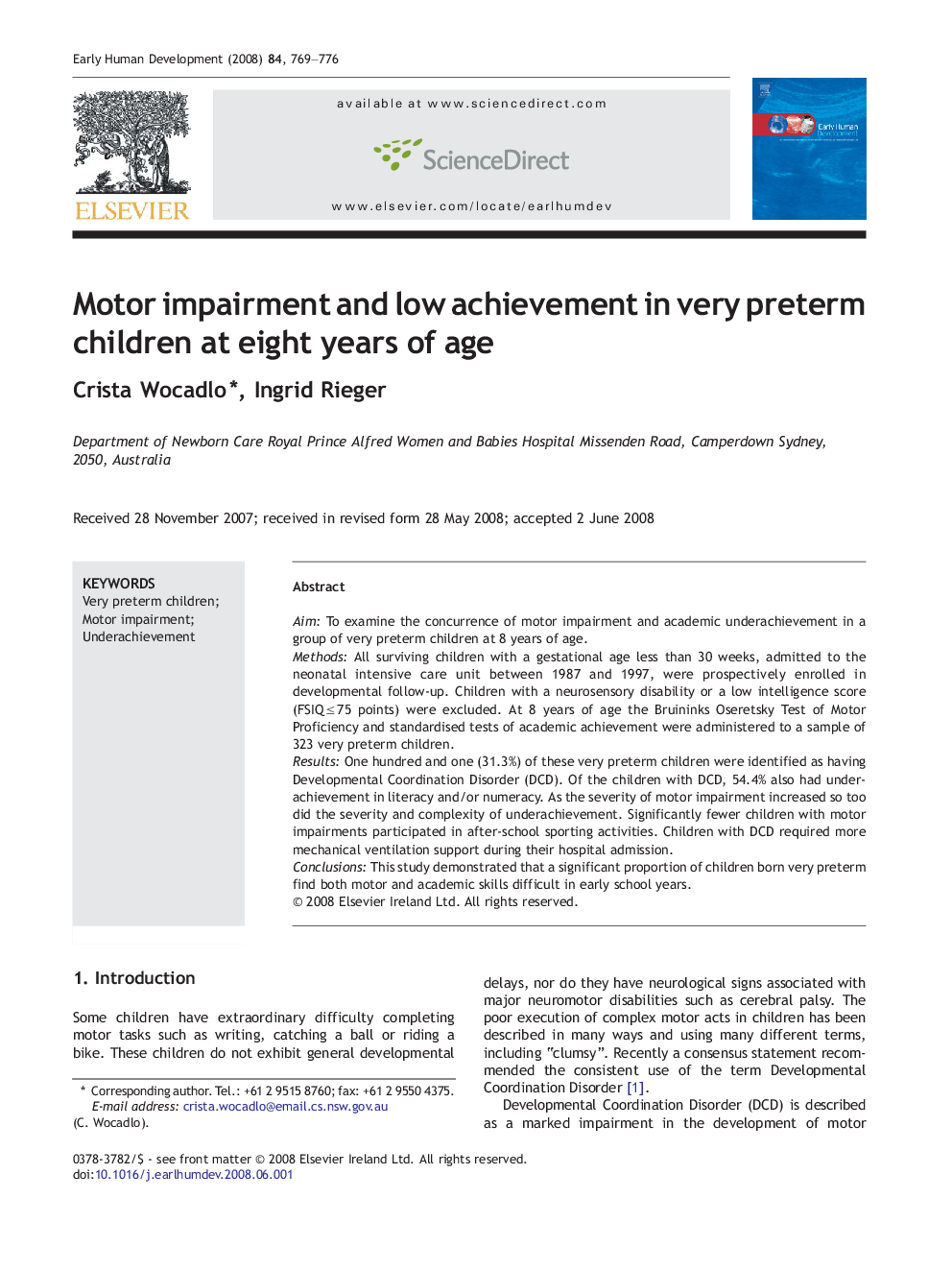| Article ID | Journal | Published Year | Pages | File Type |
|---|---|---|---|---|
| 3918574 | Early Human Development | 2008 | 8 Pages |
AimTo examine the concurrence of motor impairment and academic underachievement in a group of very preterm children at 8 years of age.MethodsAll surviving children with a gestational age less than 30 weeks, admitted to the neonatal intensive care unit between 1987 and 1997, were prospectively enrolled in developmental follow-up. Children with a neurosensory disability or a low intelligence score (FSIQ ≤ 75 points) were excluded. At 8 years of age the Bruininks Oseretsky Test of Motor Proficiency and standardised tests of academic achievement were administered to a sample of 323 very preterm children.ResultsOne hundred and one (31.3%) of these very preterm children were identified as having Developmental Coordination Disorder (DCD). Of the children with DCD, 54.4% also had underachievement in literacy and/or numeracy. As the severity of motor impairment increased so too did the severity and complexity of underachievement. Significantly fewer children with motor impairments participated in after-school sporting activities. Children with DCD required more mechanical ventilation support during their hospital admission.ConclusionsThis study demonstrated that a significant proportion of children born very preterm find both motor and academic skills difficult in early school years.
